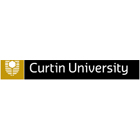Master of Arts (Applied Linguistics)
Master of Arts (Applied Linguistics)
English is one of the most spoken languages in the world, making it key to effective communication between people in a myriad of social, cultural and economic contexts. The Master of Applied linguistics course prepares you for these contexts by combining practical and theoretical units in the field. It is…
Categories
COURSE DESCRIPTION
English is one of the most spoken languages in the world, making it key to effective communication between people in a myriad of social, cultural and economic contexts.
The Master of Applied linguistics course prepares you for these contexts by combining practical and theoretical units in the field. It is designed for language education professionals who intend to teach English as a second or additional language in Australia or overseas.
The combination of practical and theoretical units provides a rich learning experience. Your skills in TESOL will be enhanced as you connect global issues with TESOL teaching and evaluate language teaching course design and assessment practices.
Investigating second or additional language acquisition will provide you with a backdrop to language teaching methodologies as will learning about English spoken around the world.
You will also become aware of the role of language in society and acquire the skills you need to conduct your own research project in applied linguistics.
Career information
TESOL (EAL/D) teacher
What you’ll learn
Understand the theoretical principles and research practices underlying contemporary language education and Applied Linguistics and apply them in a sustainable manner
Formulate and investigate problems, propose solutions to current practices, and reflect critically on the relevant empirical and theoretical literature
Identify, access, analyse and synthesise information from a wide range of sources using appropriate technologies
Communicate information and ideas effectively in speech and writing in ways that are appropriate for a range of audiences
Engage effectively with appropriate technologies to store and communicate relevant information in conjunction with contemporary language education and Applied Linguistics practices
Demonstrate capacity for independent self-directed learning; critically evaluate personal performance through a range of learning interactions; respond to feedback with a view to development as a reflective practitioner and lifelong learner
Consider language education, Applied Linguistics and professional issues from a variety of perspectives and value-systems with a view to informing and improving professional practice and applying international standards
Appreciate the value of individual and cultural differences in language use and learning, and the important implications they have for effective practice and professionalism in the workplace
Work both independently and as part of a team in a way that demonstrates professionalism, a commitment to social and ethical practices and the capacity for future leadership in the field of language education and Applied Linguistics.
REQUIREMENTS
Applicants require a degree that is assessed as being the equivalent of a four-year Australian teaching degree. Some examples of this are:
- A Bachelor of Education
- A four-year combined/double education degree
- A three-year degree in a non-education discipline plus a minimum one-year teaching qualification.
Certificate in Advanced English (CAE): Grade C; and Pearson Test of English Academic: 60. IELTS Academic (International English Language Testing System): Writing, Speaking, Reading, and Listening: 6.0; Overall band score: 6.5; TOEFL (Test of English as a Foreign Language): 79 Overall; Reading 13 Listening 13 Speaking 18 Writing 21.
EDUCATIONAL INSTITUTION
Curtin University is Western Australia’s largest and most culturally diverse university with Australia’s third largest international student population. Around 60,000 students from more than 130 countries study a Curtin degree, at locations including Perth, Margaret River, Kalgoorlie, Sydney, Malaysia and Singapore. Our cultural diversity adds a rich and valuable dimension to the campus atmosphere, preparing all graduates to live and work effectively in an increasingly global environment. We offer a range of industry-aligned undergraduate and postgraduate courses in business, humanities, health, engineering and related sciences. We also have a long-standing focus on Aboriginal and Torres Strait Islander education and culture, supported by our Centre for Aboriginal Studies.Curtin is widely recognised for its practical research that is focused on solving timely, real-world problems. In recent years our research activity has grown significantly, driving our rapid rise up the international university rankings.As a university that never settles, we will continue to develop existing partnerships and establish new ones in areas relevant to our research and teaching.




